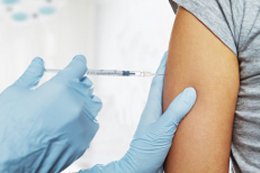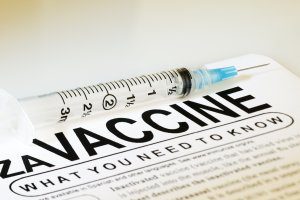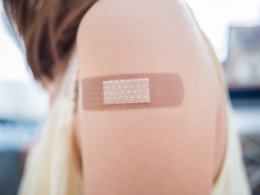 Shoulder Injury Related to Vaccine Administration (SIRVA) can take a variety of forms, each with its own effects and long-term prognosis. While most people diagnosed with SIRVA will eventually recover, recovery options vary, and a person’s individual health profile can have a significant impact on the challenges, costs and duration of the recovery process.
Shoulder Injury Related to Vaccine Administration (SIRVA) can take a variety of forms, each with its own effects and long-term prognosis. While most people diagnosed with SIRVA will eventually recover, recovery options vary, and a person’s individual health profile can have a significant impact on the challenges, costs and duration of the recovery process.
Under the National Vaccine Injury Compensation Program (VICP), a SIRVA diagnosis has both medical and legal implications. While everyone’s circumstances are unique, here are some general steps that can aid in the medical and financial recovery processes: Continue reading

 While receiving vaccinations is a safe and effective means for combatting disease, there are certain diseases and medical conditions that can increase an individual’s risk of an adverse reaction or other negative side effects. The Centers for Disease Control and Prevention (CDC) refer to these as “contraindications” and “precautions,” and it
While receiving vaccinations is a safe and effective means for combatting disease, there are certain diseases and medical conditions that can increase an individual’s risk of an adverse reaction or other negative side effects. The Centers for Disease Control and Prevention (CDC) refer to these as “contraindications” and “precautions,” and it  The measles, mumps and rubella (MMR) vaccine has recently been in the news as a result of reports of measles outbreaks in several parts of the country. According to the
The measles, mumps and rubella (MMR) vaccine has recently been in the news as a result of reports of measles outbreaks in several parts of the country. According to the  With vaccine injections, it is normal to experience acute stinging or dull pain that dissipates in the hours following the vaccination. It is not normal for this pain to linger, worsen or spread to other parts of the arm or shoulder. Unfortunately, while this pain is not normal, studies show that it is becoming
With vaccine injections, it is normal to experience acute stinging or dull pain that dissipates in the hours following the vaccination. It is not normal for this pain to linger, worsen or spread to other parts of the arm or shoulder. Unfortunately, while this pain is not normal, studies show that it is becoming